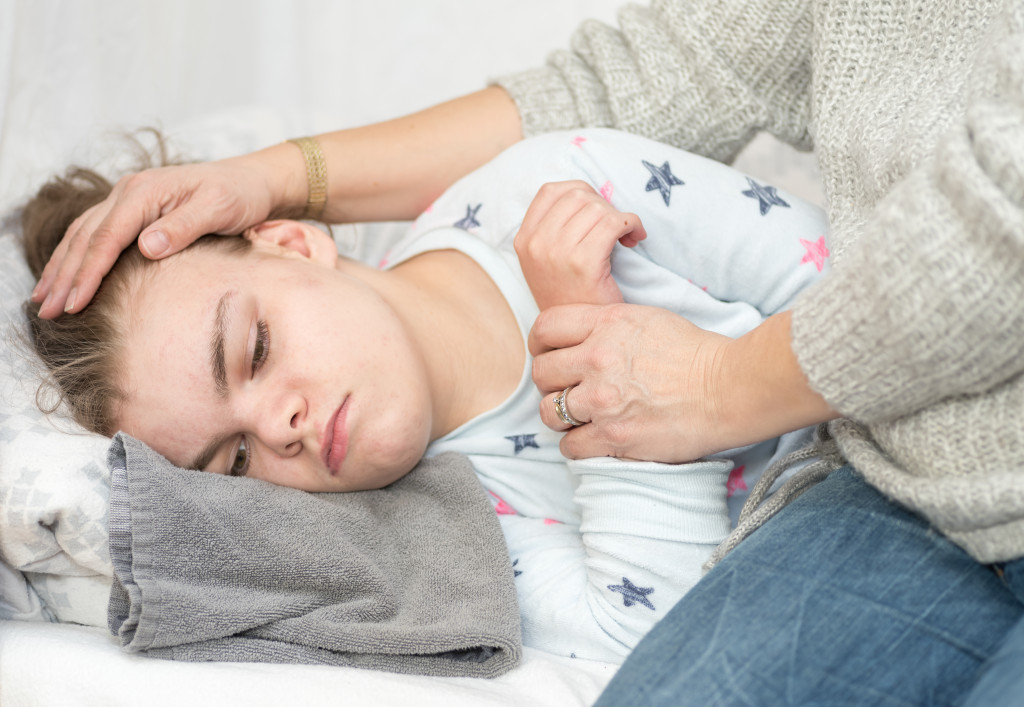- Children are vulnerable to respiratory, gastrointestinal, skin, and ear infections and allergies.
- Proper handwashing, sanitation, and avoiding sick people can prevent respiratory and gastrointestinal infections.
- Clean and dry skin, avoiding contact with infected people, and practicing good hygiene can prevent skin infections.
- Vaccines, clean homes, and avoiding exposure to allergens can help prevent ear infections and allergies.
- Most notably, keeping in touch with a local family doctor can help ensure your child’s health and safety.
Children are the future, and it’s our responsibility to ensure their health and well-being. As parents, caregivers, and responsible adults, it’s essential to learn about the common health issues that affect children. Here’s a closer look at some of the most common diseases that affect children today.
Children’s Susceptibility to Sickness
Children are vulnerable to certain illnesses and diseases due to their age, size, and developing immune systems. Here are some common sicknesses among children.
Respiratory Infections
Respiratory infections are the most common disease among children. These can range from mild infections like the common cold to more severe illnesses like pneumonia. Respiratory infections are highly contagious and can quickly spread from one child to another.
Signs and symptoms to watch out for include a persistent cough, fever, sore throat, runny nose, and difficulty breathing. The best way to prevent respiratory infections is to wash your child’s hands frequently, avoid close contact with sick people, and practice good hygiene.

Gastrointestinal Infections
Gastrointestinal infections are another common disease among children. These infections affect the stomach and intestines, causing diarrhea, vomiting, and stomach pain. Viruses or bacteria often cause gastrointestinal infections and can spread quickly through contaminated food and water. To prevent gastrointestinal infections, ensure your child washes their hands regularly, avoid consuming contaminated food and water, and avoid close contact with infected individuals.
Skin Infections
Skin infections like impetigo and ringworm are also common among children. These infections affect the skin and can cause rashes, blisters, and itching. Skin infections are highly contagious and can spread through contact with an infected person or contaminated objects. To prevent skin infections, ensure your child practices good hygiene, avoids sharing personal items like towels and combs, and keeps their skin clean and dry.
Ear Infections
Ear infections are common among young children, especially those between 6 months and two years of age. Bacteria or viruses can cause these infections and can cause symptoms like ear pain, fever, and irritability. Ear infections often occur after a cold or other upper respiratory infections. To prevent ear infections, make sure your child practices good hygiene, avoids exposure to cigarette smoke, and gets vaccinated against certain infections like pneumococcal disease.
Allergies
Allergies are also common among children, affecting up to 1 in 5 children in the United States. Allergies can cause various symptoms, from sneezing and runny nose to hives and difficulty breathing. Common allergens include pollen, dust mites, pet dander, and certain foods. To prevent allergies, ensure your child avoids exposure to allergens, take medication as prescribed by their doctor, and get vaccinated against certain infections that may trigger an allergic reaction.
General Prevention and Treatment
Thankfully, there are some general prevention and treatment you can do for these sicknesses. Here are some of them:

Family Doctor
First, it’s important that you know a local family doctor. This can help you and your child in case of any medical emergencies or illnesses. Visit your local family clinic and get to know the family doctor better. They can help you understand these sicknesses and even provide medical advice.
Good Hygiene
Second, practicing good hygiene is vital to preventing any illnesses and diseases. Teach your child the importance of handwashing and remind them to do so often. Also, teach your child not to share personal items with others and ensure they’re correctly sanitized or cleaned after each use.
Clean your Home
You must clean your home regularly. This will reduce any allergens or bacteria that could be present in the air or on surfaces. Vacuum and mop often, and ensure you’re using cleaning products like disinfectants to kill germs.
Vaccines
Lastly, ensure your child is up to date with their vaccines. Vaccines are the best way to protect your child from specific infectious diseases. Discuss with your family doctor which vaccinations your child should get and ensure you meet that schedule.
By following these tips, you can help ensure the health and safety of your children by being aware of the common illnesses and diseases that could affect them. Also, don’t forget to keep in touch with your local family doctor for any medical advice or questions about your child’s health.


